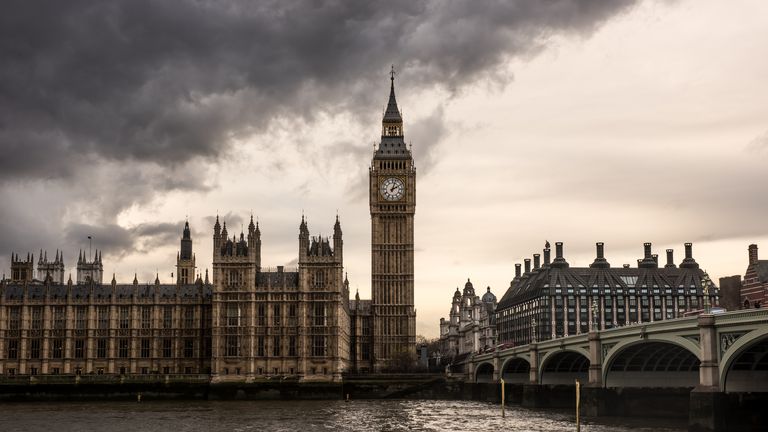Yemen ceasefire could fail within weeks, warns Foreign Secretary Jeremy Hunt
The Foreign Secretary tells Sky News it is "a critical moment" for the nation where 20 million people are close to starvation.
Sunday 3 March 2019 22:44, UK
A fragile ceasefire in Yemen will fail – possibly within weeks – unless both sides deliver commitments made at peace talks more than two months ago, Jeremy Hunt has said.
The first British foreign secretary to visit the country in more than 20 years told Sky News it is an "absolutely critical moment" for a nation torn apart by war since 2015 and with some 20 million people on the brink of starvation.
Saudi Arabia, the United Arab Emirates and other members of a coalition backing the Yemeni government agreed to stop airstrikes against Houthi rebel forces in the port city of Hudeidah as part of negotiations made during the December talks in Stockholm.
In return, Houthi rebels were supposed to leave their positions in the area - something that has yet to happen, according to Mr Hunt.
"The Houthis need to do their side of the bargain. And that needs trust and it needs courage and it isn't easy in a situation like we're in," said the UK's top diplomat.
"But it is absolutely essential for the people of Yemen, who've suffered so much, that this first real shot at peace we've had for four years is given a chance to succeed."
Asked what the danger is if the push for peace, led by British diplomat Martin Griffiths, a special envoy to the United Nations, the foreign secretary said: "There are 20 million people who don't know if they're going to be able to get their next week's supply of food. We've had 85,000 children estimated to have died of starvation.
"We've had all the horrors that you get in any war… I think everyone wants to get through this and to get over to the other side. But there's just a lack of trust which has festered because of what's happened in the war."
As for how much longer until the ceasefire fully falls or until it is allowed to take hold, the foreign secretary was clear that time is running out fast. "It may be a very short time," he said, speaking from Abu Dhabi.
"Patience is wearing very thin. And we've just got to really make sure everyone understands - that's why I came over here - that... this ceasefire will not last if all parties don't honour the agreements they signed up to.
"And that would be a terrible humanitarian tragedy if the war restarted."
Mr Hunt has spent the past three days also visiting Oman, Saudi Arabia and the UAE, speaking to all sides in the conflict. He travelled in secret to the Yemeni port of Aden on Sunday - the first trip by a Western foreign secretary since the war began in 2015 and the first visit by a British foreign secretary since Malcolm Rifkind in 1996.
News of the trip broke when the foreign secretary posted a video clip of himself in a flak jacket in Aden, on Twitter, warning that this is the "last chance" for peace. He said the Stockholm agreement will "likely die" unless the ceasefire is upheld.
In the interview with Sky News, the foreign secretary was also asked about Brexit.
He signalled that the chances of Theresa May securing a majority backing in the House of Commons for her deal on 12 March were growing amid signs that Brexiteer colleagues appear more willing to compromise over the issue of the Northern Ireland border.
"There really is a way that we can get through this," he said.
"I think these signs are encouraging. I think there's a lot of hard work still to do. We still need critically that substantive change to the backstop that will allow the attorney general to change his advice to Parliament and say that the UK couldn't be personally trapped in that backstop.
"That's the critical thing that's needed to unlock this.
"But given that it is one thing - it's a very significant thing - you know I think with political will and with courage and with vision I do believe it's possible to get through this and to get an agreement through the House of Commons."







